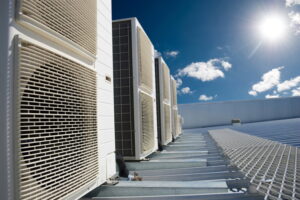 We offer service for light commercial HVAC in High Springs, FL. “Light” commercial means we work with AC and heating units that are 25 tons and under. No, that doesn’t have anything to do with how much the equipment weighs. The “tonnage” of a system is a bit more complex, and it has to do with the amount of heating and cooling an HVAC unit can provide.
We offer service for light commercial HVAC in High Springs, FL. “Light” commercial means we work with AC and heating units that are 25 tons and under. No, that doesn’t have anything to do with how much the equipment weighs. The “tonnage” of a system is a bit more complex, and it has to do with the amount of heating and cooling an HVAC unit can provide.
This applies to residential ACs and heaters as well, so even if you don’t own or operate a commercial facility, you may wish to stick around and learn about how professionals determine the amount of power necessary to provide climate control for a building.

 One of the caution signs we tell homeowners about that will help them determine when they need repairs for their
One of the caution signs we tell homeowners about that will help them determine when they need repairs for their 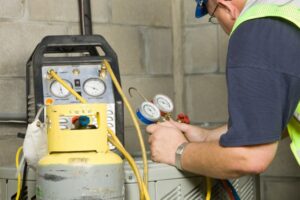 If you read the title of this post and thought, “A
If you read the title of this post and thought, “A  Your house is getting warm on a hot day, so you set the thermostat to switch on the air conditioning system. Soon, your house begins to feel comfortably cool, and the AC runs for as long as necessary.
Your house is getting warm on a hot day, so you set the thermostat to switch on the air conditioning system. Soon, your house begins to feel comfortably cool, and the AC runs for as long as necessary.  Summer weather means higher electricity bills for your house. There’s no way to avoid a rise in costs because the compressor that allows an AC to provide cooling draws on a great deal of power when it runs. The average central air conditioning system uses around 3,000 to 3,5000 watts an hour, adjusted up and down depending on the AC’s size. How much this costs you is predicated on the price of electricity in your area.
Summer weather means higher electricity bills for your house. There’s no way to avoid a rise in costs because the compressor that allows an AC to provide cooling draws on a great deal of power when it runs. The average central air conditioning system uses around 3,000 to 3,5000 watts an hour, adjusted up and down depending on the AC’s size. How much this costs you is predicated on the price of electricity in your area.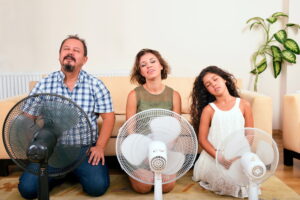 What do you expect from a central air conditioner in a house? The answer is simple: you want it to make the house cool and comfortable when the weather is hot. If the AC can’t do that, what good is it?
What do you expect from a central air conditioner in a house? The answer is simple: you want it to make the house cool and comfortable when the weather is hot. If the AC can’t do that, what good is it?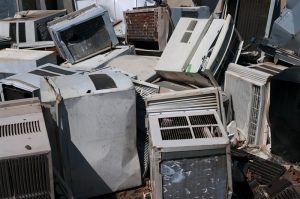 In our past two posts, we wrote about the importance of having regular AC maintenance each spring. We could post plenty more about this topic, since it’s that important—you can have most of your potential AC problem vanish thanks to keeping up with maintenance. There is one AC problem you
In our past two posts, we wrote about the importance of having regular AC maintenance each spring. We could post plenty more about this topic, since it’s that important—you can have most of your potential AC problem vanish thanks to keeping up with maintenance. There is one AC problem you 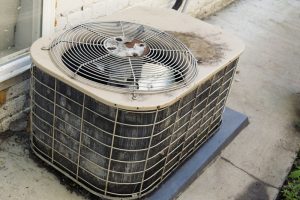 Our last post was our annual reminder about scheduling air conditioning maintenance every spring—or a bit before spring for Florida because of the way our seasons work. But we aren’t finished with all we have to say about AC maintenance yet. It’s important enough for a second reminder as well as some more in-depth information about what makes maintenance so critical.
Our last post was our annual reminder about scheduling air conditioning maintenance every spring—or a bit before spring for Florida because of the way our seasons work. But we aren’t finished with all we have to say about AC maintenance yet. It’s important enough for a second reminder as well as some more in-depth information about what makes maintenance so critical.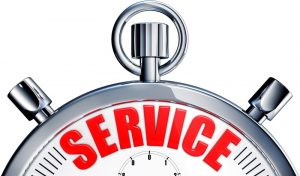 It’s not yet officially spring. That doesn’t happen until the third week of March. But Florida weather is Florida weather, and we have to be ready for hot spells at almost any time, and the season for air conditioning seems to start earlier each year. We’re sure you’ve used your AC a few times during the last couple of months, which is when people in many other parts of the country have their furnaces going full-blast through the day to fend off below-freezing temperatures.
It’s not yet officially spring. That doesn’t happen until the third week of March. But Florida weather is Florida weather, and we have to be ready for hot spells at almost any time, and the season for air conditioning seems to start earlier each year. We’re sure you’ve used your AC a few times during the last couple of months, which is when people in many other parts of the country have their furnaces going full-blast through the day to fend off below-freezing temperatures. 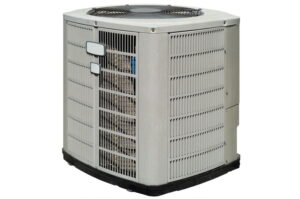 This sounds a bit like a Christmas request (we don’t think Santa can cram a new central air conditioning system down your chimney, and we also doubt he has the proper certifications to accurately size it), but it may be a big question you’ve got for the upcoming season. You know that the current AC you have is near the end of its service life, and trying to push it through another summer in Florida may end in disaster.
This sounds a bit like a Christmas request (we don’t think Santa can cram a new central air conditioning system down your chimney, and we also doubt he has the proper certifications to accurately size it), but it may be a big question you’ve got for the upcoming season. You know that the current AC you have is near the end of its service life, and trying to push it through another summer in Florida may end in disaster.